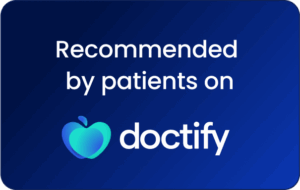One of the greatest concerns voiced by uninsured patients who choose to pay for surgery themselves (‘self-funding’) is ‘if I have prostate surgery privately will the NHS look after me afterwards?’ The answer is unequivocally ‘yes’.
The NHS is very flexible in this regard – if you are a UK (or EU, at least for the time being) citizen you are still entitled to free NHS care, so reverting back to the NHS for follow-up either by your local surgeon (or even the one who operated on you privately) will not be a problem. It’s a very fluid relationship between NHS and private – please don’t think you’re some kind of pariah for choosing to go private in the first place!
Whether you have your operation on the NHS or as a private patient, you can be assured that your surgeon and his or her team will always work hard to give you the very best outcome possible. However, there are some advantages to being a private patient and although the proportion of patients carrying health insurance has been fairly static during the past few years, there are increasing numbers of self-funding private patients. So why are these numbers increasing and what are the advantages of having an operation done privately?
- The most important advantage that patients cite is being able to choose your surgeon. In private healthcare there are no trainees to train, so the entirety of your operation will be performed by the surgeon that you originally discussed surgery (and its anticipated results) with. On the NHS, part or all of your prostatectomy might be carried out by a trainee under the supervision of a more experienced surgeon.
- Generally, the waiting time for surgery is shorter: typically 2 weeks for private patients. This may or may not be important to you, depending on the severity of your condition.
- Greater flexibility regarding dates.
- Frills such as your own private bedroom and bathroom instead of a ward, generally better food, unlimited visiting times and generally easier/free car parking, are totally unimportant to some patients and rather more important to others.
It’s also important to understand that having private surgery doesn’t commit you to a never-ending series of future costs, as the surgery ‘package’ price is fixed and includes all care (expected and unexpected) that may be necessary up to (typically) 30 days after the operation. It’s important for patients to have peace of mind, and so the exact details will be clearly stated in the package documentation that you receive. But rest assured you are free to transfer back to the NHS at any time should you wish to.

